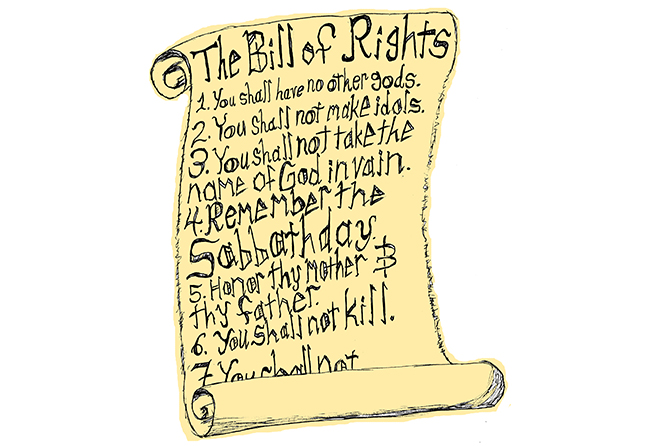The Supreme Court’s 5-4 ruling on June 26 granting marriage equality to all Americans was a monumental decision, one that has stoked political controversy and raised serious questions within our own state. While Texas is currently under no legal obligation to issue these licenses because of a legal technicality, they soon will be, which makes Attorney General Ken Paxton’s directive to county clerks allowing them to deny marriage licenses to same sex couples all the more troubling.
Paxton stated after the ruling that county clerks have the ability to refuse marriage licenses to gay couples, even after the Supreme Court ruled those marriages legal. Paxton’s legal reasoning centered on “religious freedom” by suggesting that a county clerk should be able to refuse licenses if they object to same-sex marriage on religious grounds. In addition to the logistical catastrophe of this rule – with potentially 254 counties each having different laws on same sex marriage – there are the more troubling aspects of the ruling that should be taken into account.
First, Paxton’s doctrine of religious freedom must be understood. The definition of and reason for religious freedom in the United States has to do with being persecuted for practicing a religion. The need for religious freedom is very real and very important. Anyone in the United States, be they Christian, Muslim, Jewish or anything else, deserves to be treated with dignity and respect and should never be barred from practicing their religion or attacked on the basis of it. Paxton claims that county clerks being forced to issue marriage licenses can violate clerks’ “sincerely held religious beliefs,” and that such beliefs may armor clerks against their duty to comply with the Supreme Court’s ruling.
The second part of this debate is the role of the county clerk. A county clerk keeps records, issues licenses and provides many of the administrative tasks necessary to keep a county running and citizens happy. County clerks most certainly have religious freedom as citizens of the United States. But, they are also charged with a duty to impartially provide services to the communities in which they serve. They are tasked, ultimately, with upholding the law. Just as a drafted soldier would be required to fight even if they didn’t believe in the war, or a diplomat would be obligated with advocating for foreign policy decisions they disagree with, county clerks are obligated as public employees to carry out the laws that are handed down from the State and Federal governments. Acting otherwise would erode the fabric of local governance.
If a county clerk believes that a candidate for political office stands against the doctrine of his religion, can the clerk refuse to certify them? If a county clerk were a devout Catholic, would that give them a right to deny divorces on religious grounds? If a clerk’s religion states that children born out of wedlock are illegitimate, can he or she deny a birth certificate for such a child? The answer to these questions, and many more like it, is and must be no.
Religious freedom means that individuals should be able to practice any religion they want and that they should be free of discrimination while doing so. But, county clerks serve the public — they follow the laws of our country. The issuing of marriage licenses to homosexuals does not deprive these individuals of their right to practice their religion. Denying those licenses stands in opposition to the laws of the land. Ultimately, it stands against the Constitution, the very document which enshrines religious freedom.
My suggestion to county clerks and Attorney General Paxton is thus: if you don’t feel comfortable with gay weddings, don’t go to them. But, do not flout the Supreme Court of the United States. That is much more dangerous than discomfort.
Fountain is a government senior from Pelham, New York.





















